Sleaford Mods | Interview | Limited Edition Reissue of Remastered Classic Album ‘Divide and Exit’
Sleaford Mods have always been the ragged edge of the blade, slicing through the fat of societal nonsense with every release.
Their ‘Divide and Exit’ album was a punk juggernaut that smashed through convention, and its reissue with remastered audio only amplifies its raw power. This isn’t just a stroll down memory lane; it’s a reminder of their unfiltered commentary on class and austerity that still resonates today. Now, with ‘UK Grim,’ they’re not just holding up a mirror to the UK’s grim socio-political landscape; they’re shoving it in your face. The reissue of ‘Divide and Exi’t and the fresh cuts on ‘UK Grim’ don’t just coexist; they collide, creating a testament to the band’s relentless evolution. Jason Williamson might shrug off the idea of provoking change, but with every guttural growl and sharp lyric, Sleaford Mods are documenting the decay with an artist’s eye and a punk’s heart. They’re not politicians, but damn if they aren’t the town criers we need, shouting into the void with a truth that’s as bracing as it is necessary.
Rough Trade Records recently released ‘Divide and Exit’ as a limited anniversary edition vinyl with a new sleeve designed by Cold War Steve, a flexi-disc with the unreleased track ‘Git Some Balls,’ and new sleeve notes, along with an exclusive CD version. The duo will play the Divide and Exit UK Tour in grassroots venues this November.
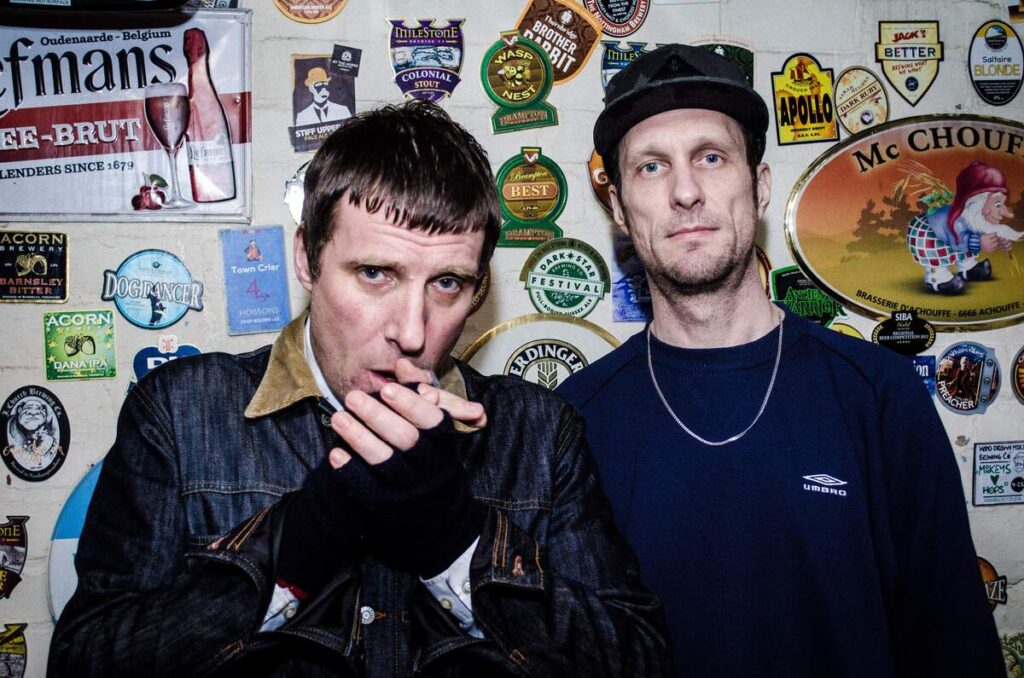
“A new kind of darkness is creeping in”
Reflecting on the reissue of Divide and Exit for its 10th anniversary, what emotions or memories does this album evoke for you personally?
Jason Williamson: Elation, complete happiness for what seemed like a year or so. We’d blown up, as much as a band like Sleaford Mods can blow up. Brilliant times.
‘Divide and Exit’ captured a snapshot of the societal and political landscape in Britain at the time of its release. How do you feel the themes and messages of the album resonate in today’s context?
It’s largely the same, but obviously, the new government could change this a little. But not much. I’m not sure. Internationally, it’s concerning, politically speaking. A new kind of darkness is creeping in.
The album’s cover art, designed by Cold War Steve, adds a new dimension to the reissue. How does this visual representation complement the music, and what inspired the collaboration with Cold War Steve?
Chris (Cold War Steve) is like a third member aesthetically speaking. He’s brought the dampness of ‘Divide and Exit’ totally to the front with the new cover. He also did the video for ‘UK GRIM,’ the lead single from the last album. Brilliant. Just brilliant.
The inclusion of the unreleased track ‘Git Some Balls’ on the flexi-disc is an exciting addition for fans. Can you share the story behind this track and why it wasn’t included in the original release?
I’d forgotten all about this version of ‘Git Some Balls.’ Andrew said I had heard it but wasn’t keen. Which says it all, really. It’s wicked. It just didn’t make the final cut. We work quickly and have loads of stuff that never makes it.
“Little things like that collectively make a big difference.”
The CD version of the reissue features exclusive artwork and a t-shirt. All Sleaford Mods profits from the t-shirt are going to War Child UK. What motivated you to continue collaborating with War Child UK, and how do you see the role of artists in supporting charitable causes?
We’ve supported various charities over the years—Shelter, Refuge, Mermaids to name a few. War Child asked us to do a gig years ago, but we could never quite make the schedule work due to touring. It finally fell into place last year. With everything happening in Ukraine, Gaza, Sudan, the Congo, and so many other places, it made sense to keep working with them. Powerlessness comes to mind when you try to contribute to helping those affected by war, and what role an artist should play is down to the individual. For us, it’s about taking action that will positively impact those in need. I volunteer locally as well. Little things like that collectively make a big difference.
‘Divide and Exit’ received acclaim for its direct lyrics and minimalistic electronic sound. How did you and Andrew Fearn approach the creative process for this album, and how has your approach evolved since then?
I kept telling him to make it sound Wu-Tang: sparse, dirty. And at once he started making these long, fast-paced punk loops. I wanted to fully explore an attempt at rapping, which turned into ranting mostly. I think since then we’ve evolved very subtly but always evolving, never collapsing in on ourselves. In the early days, we would knock out five tunes a session and not look back. We tend to take our time a little more now and are open to reworking tunes, tweaking until we feel they’re right.
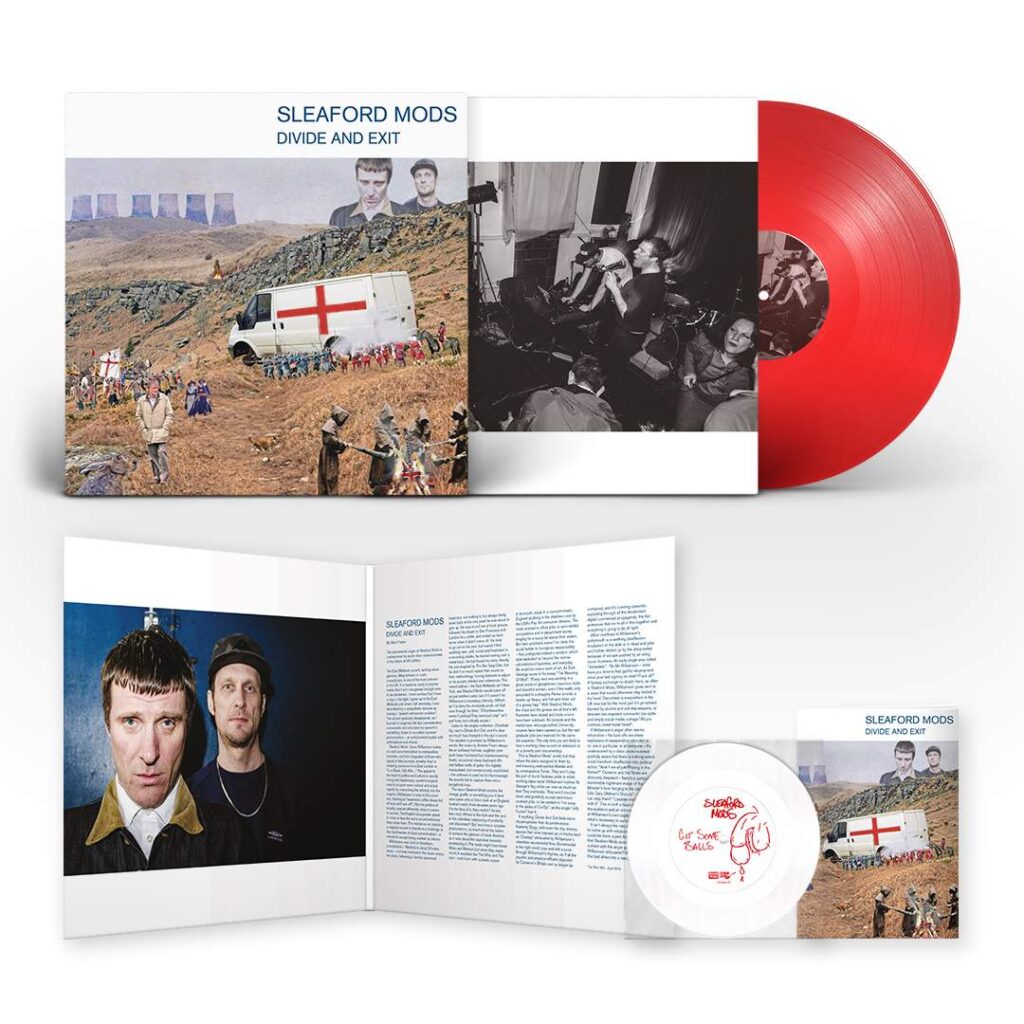
Stewart Lee described Sleaford Mods as “English visionary ranters.” How do you see the evolution of your lyrical style and the themes you explore in your music from Divide and Exit to your more recent work?
Stewart’s a very bright man. I always see myself as not that bright, so it’s still quite crazy that he likes us. Regarding the evolution, I’ve always written about my lived experience, so as my life has evolved, so has my lyric writing. As I get older, I find myself exploring more and more about my childhood as I seek to understand it. The approach hasn’t changed really but then has changed quite dramatically.
The upcoming Divide and Exit Tour will see you perform in grassroots venues, returning to the intimate settings where you first gained traction. What do you enjoy most about performing in these smaller venues, and how does the energy differ from larger festival stages?
Intimacy isn’t to be overlooked, and that’s what’s most interesting about these gigs. The smaller shows demand a more tightly wound, aggressive performance, whereas the larger stages seem to encourage more showmanship. That said, nothing is planned; we don’t rehearse. I just do what comes naturally.
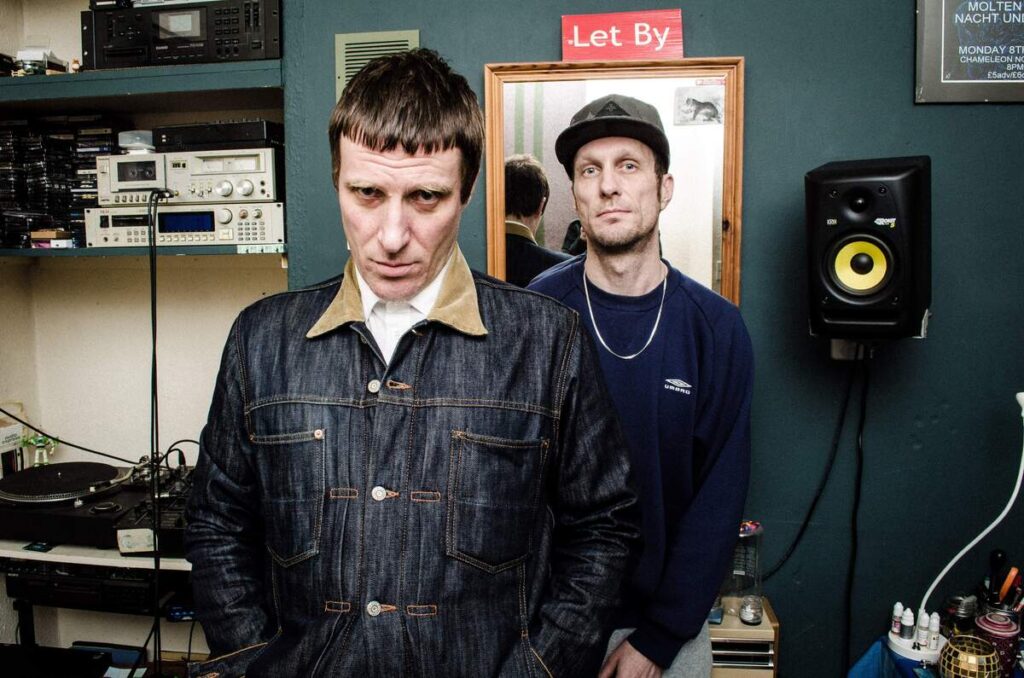
How have your influences shifted or evolved over the years, and how do you see that reflected in Sleaford Mods’ music?
Andrew is in the same category for me as Brian Eno; he doesn’t follow trends or make things sound like anyone else. He can be inspired by a doorbell or a car alarm. He’s in his own lane, and that’s why I think our sound is so singular.
Would you like to share about your upbringing?
I lived on a council estate in Grantham until I was 14. Then I moved up the road to a new build, in the middle of a council estate in Grantham. There was nothing there for me.
Tell us about daily life back in your teenage years.
I was expelled from school just before my GCSEs. They didn’t think I’d pass, so no one was that bothered. I worked in factories until I went to college. Tried to get into drama school but couldn’t afford the auditions. Then work.
Was there a certain scene you were part of, maybe you had some favorite hangout places?
I used to follow the Wonder Stuff around the country. Then Madchester exploded. Club culture. I left college, got a factory job again, and took drugs.
Did you attend a lot of gigs back then?
Mainly the Wonder Stuff, Pop Will Eat Itself, and New Model Army. The first gig I ever went to was Public Enemy, LL Cool J, and Eric B. Spellbinding.
“I was obsessed with the naturalism and realism”
If we were to step into your teenage room, what kind of records, fanzines, posters, etc., would we find there?
NME. Jam posters. Stone Roses posters. Sylvester Stallone posters. I loved Stallone. I’ve watched Rocky at least 48 times. I was obsessed with the naturalism and realism. Philadelphia didn’t seem that different from Grantham.
Sleaford Mods’ live performances are renowned for their raw energy and unfiltered intensity. What goes through your mind when you’re on stage, and how do you channel that energy into your performance?
I don’t try and channel anything; it just pours out. When I start to worry about forgetting the words, I automatically up my physicality as it helps me concentrate.
How does ‘UK GRIM’ reflect the evolution of Sleaford Mods’ sound and lyrical themes since your earlier work?
It’s a more refined sound. The lyrics are firmer and at ease with themselves. There’s more wisdom in there.
Can you discuss the significance of the album’s title, ‘UK GRIM,’ and how it encapsulates the socio-political landscape you’re exploring in your music?
Our country is grim. Grim is the only word we use really to describe it. It’s beaten, like a flogged horse. The phrase came about during promo for the previous album, ‘Spare Ribs,’ when a journalist described our genre as UK Grim, riffing on UK Grime. It kind of stuck.
In what ways did the collaborative process with other artists on this album influence its direction and message?
Collaborations don’t tend to influence the direction. I just enjoy putting odd shapes together in the sense of each song’s presence. So the collaborations only have to work. That’s all. They aren’t used as seeds for the album’s casing.
How do you navigate balancing social commentary with personal expression in your songwriting?
I always write from a place of lived experience, and I don’t overthink it. It’s whatever feels natural at the time. I’m never wedging stuff in for the sake of it. I can’t write like that.
‘UK Grim’ seems to confront issues of class, austerity, and disillusionment. How do you see your role as an artist in provoking social discourse and potential change through your music?
I don’t really. I think largely we are powerless to conduct change. Maybe we can nudge things, but that’s it. I’m not a politician. My role is to document and to write good songs with my musical partner.
Looking back on your journey since the release of ‘Divide and Exit,’ what do you consider to be the most significant lessons or experiences that have shaped you as an artist and as a person?
I’ve grown more conscious of my ego. I got sober and have been for eight years. I like to think I’ve grown.
“We’ve carved our own path. That’s what I feel makes us punk.”
‘Divide and Exit’ has been described as a punk record that broke new ground. How do you define punk in the context of your music, and what do you hope listeners take away from the album’s reissue and accompanying tour?
We’ve carved our own path. That’s what I feel makes us punk. I hope listeners appreciate the album’s reissue; the remastered audio sounds massive. It makes me very happy that people think it broke new ground.
Let’s end this interview with some of your favorite albums. Have you found something new lately you would like to recommend to our readers?
‘Station to Station’ – David Bowie. (I’m admittedly very late to this party)
‘The Art of the Lie’ – John Grant.

Thank you for taking your time. Last word is yours.
Take care. Watch how you go.
Klemen Breznikar
Headline photo: Ewen Spencer
Sleaford Mods Official Website / Facebook / Instagram / Twitter / Bandcamp / YouTube
Rough Trade Records Official Website / Facebook / Instagram / Twitter / Bandcamp / YouTube

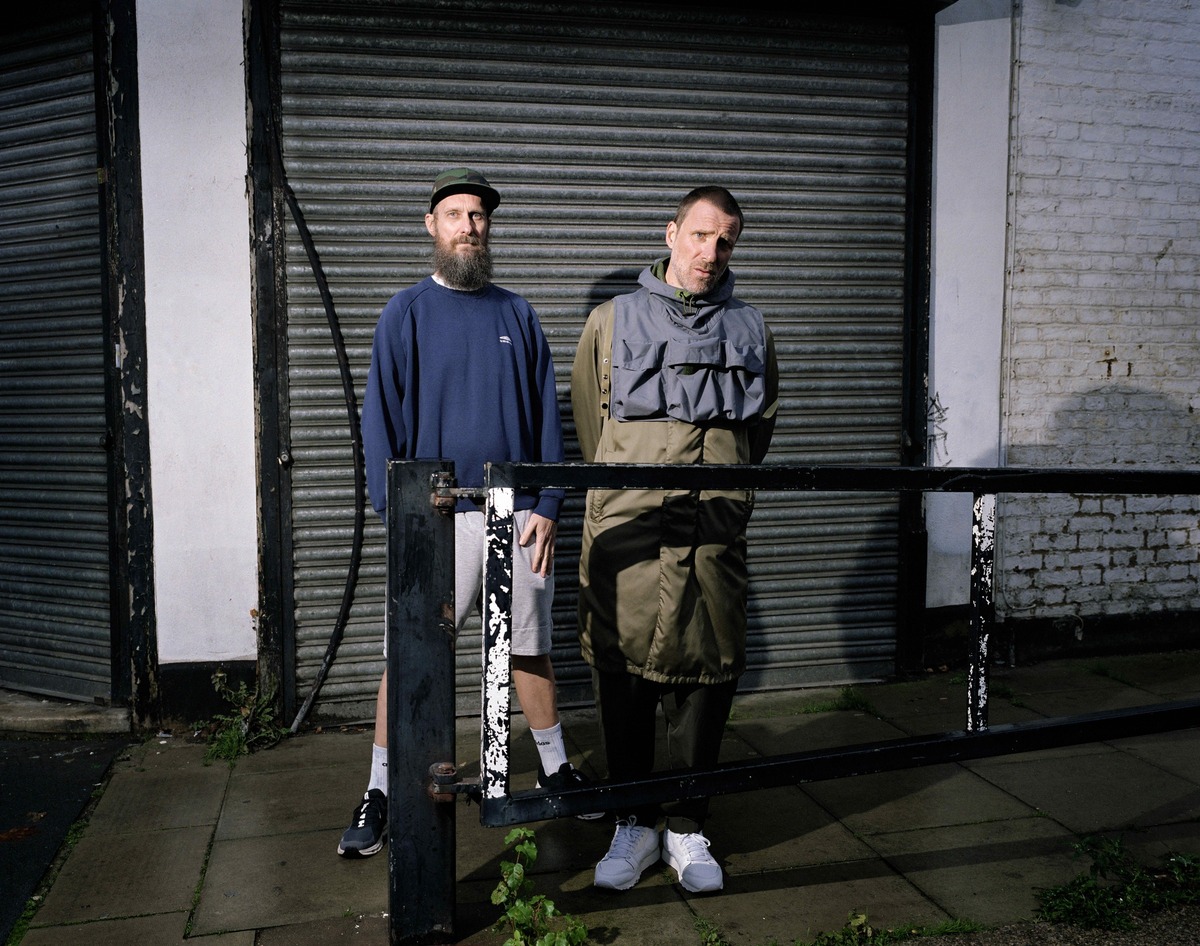
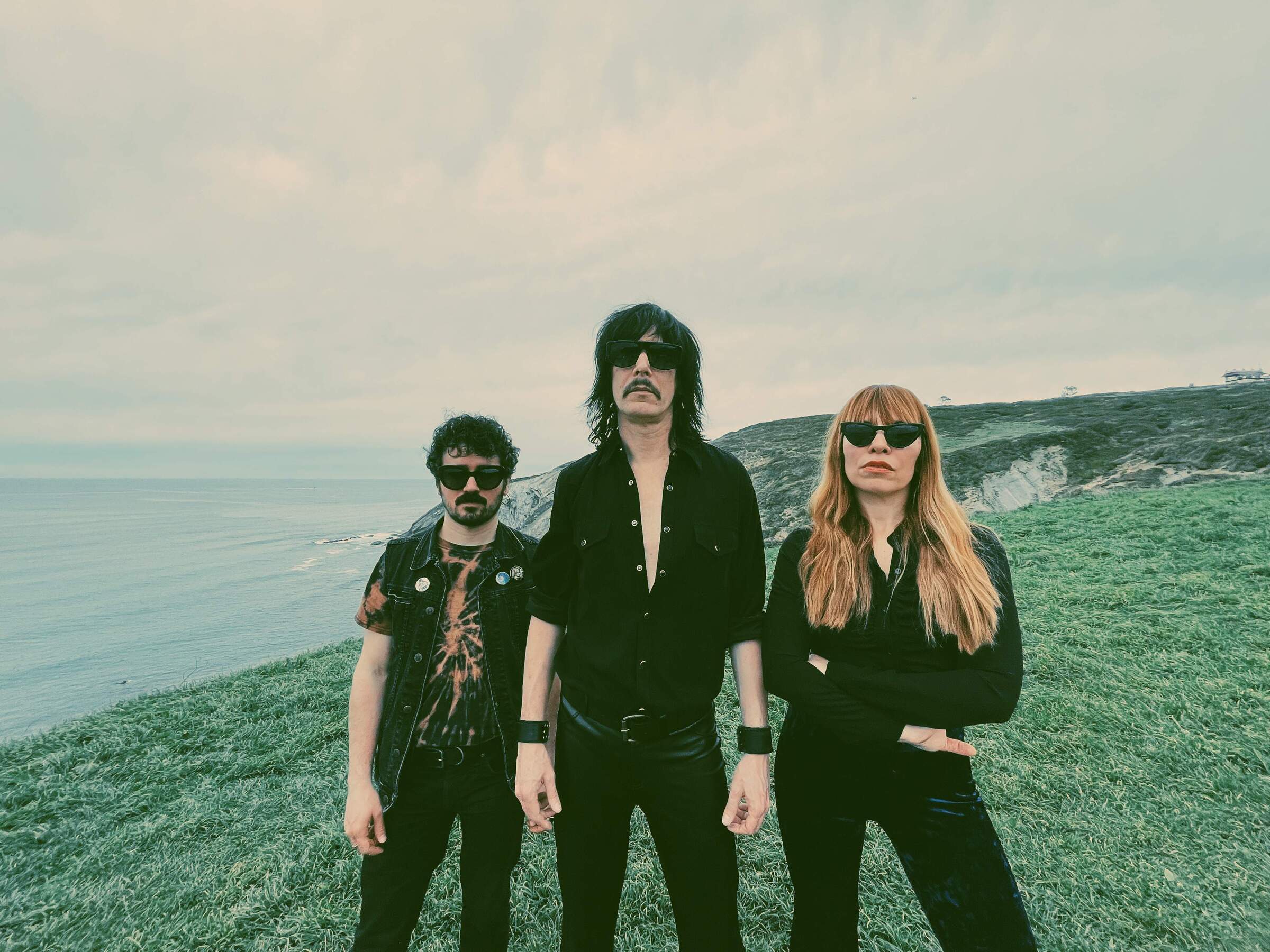
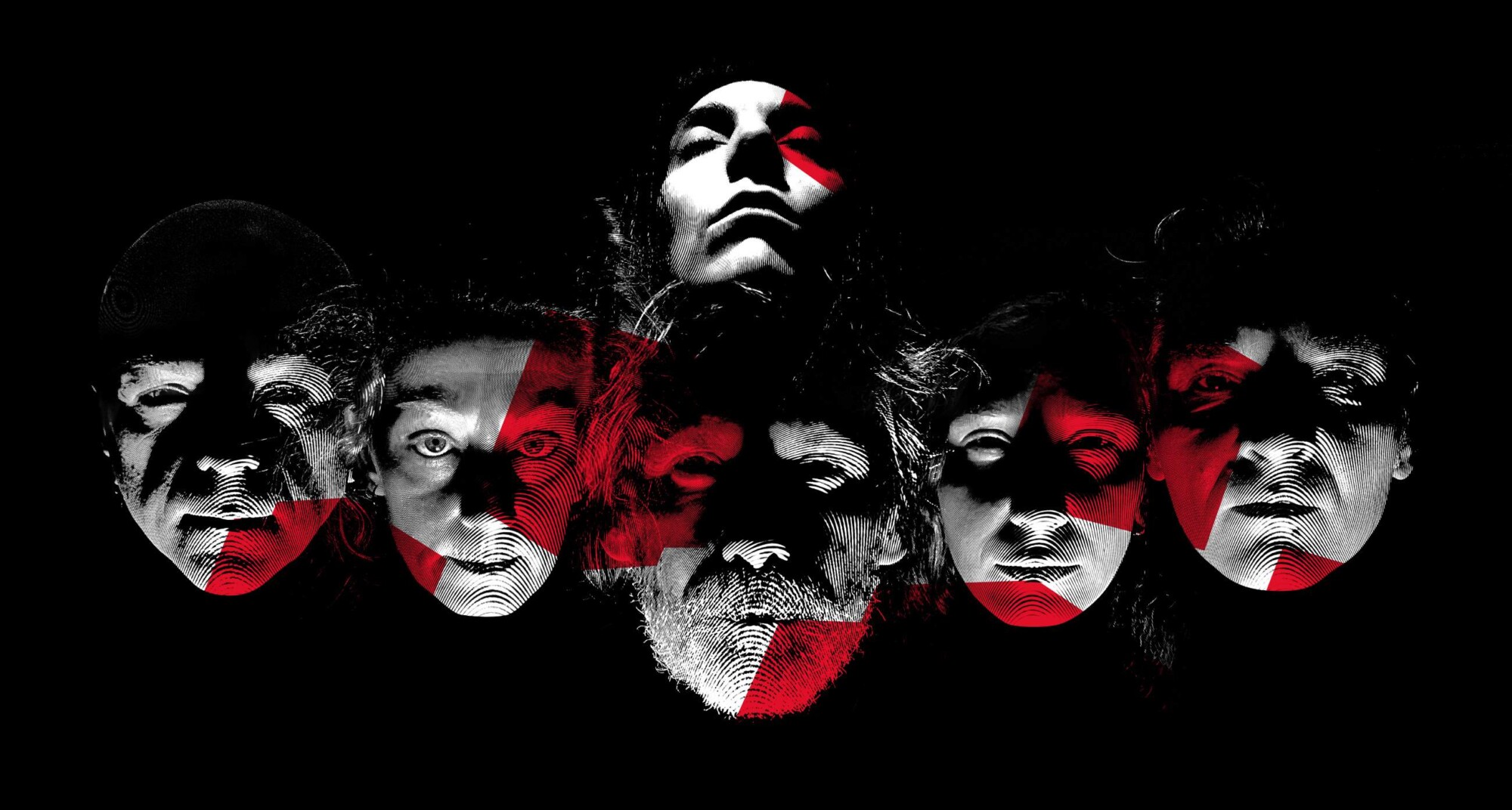
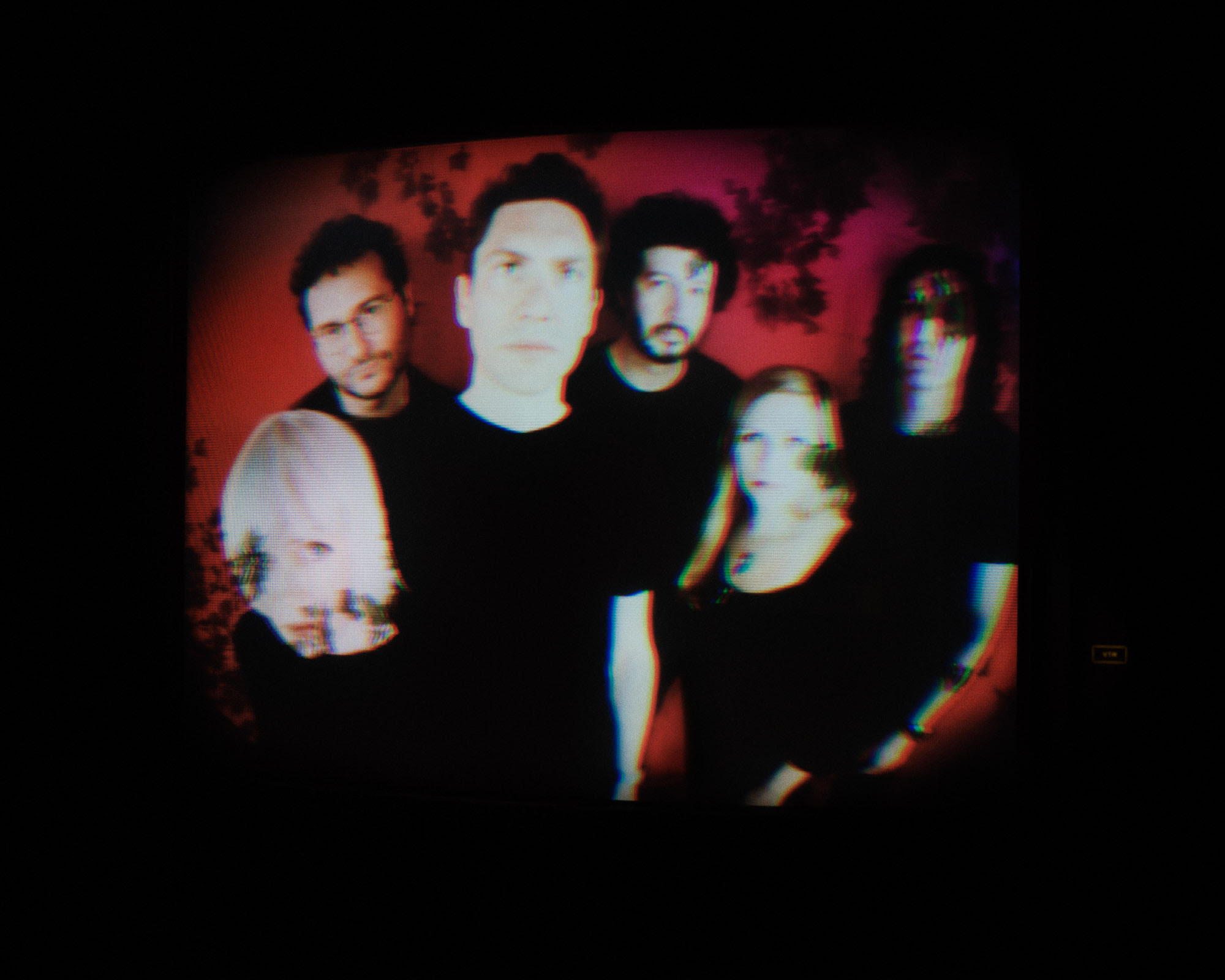
It’s nice to see arguably the best group in the world right now featured here. Williamson was polite but a little too curt.